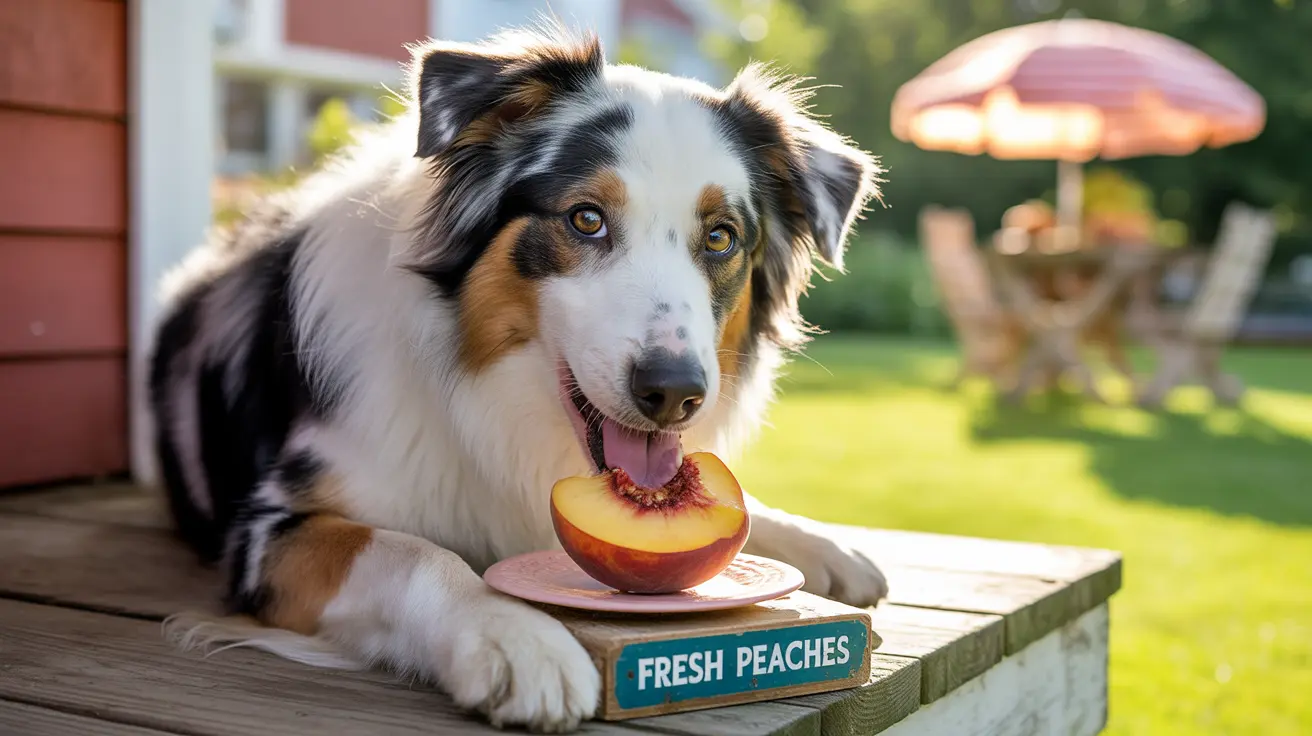The Safety of Peaches for Dogs
While the flesh of fresh peaches is safe for dogs, certain parts of the fruit can be dangerous. Understanding these risks is crucial for your pet's safety:
Safe Parts vs. Dangerous Components
The flesh of ripe, fresh peaches is non-toxic and generally safe for dogs. However, peach pits, stems, and leaves contain amygdalin, a compound that can release cyanide when ingested. These parts must always be removed before offering peaches to your dog.
Potential Hazards to Watch For
- Choking risks from pits
- Intestinal blockage
- Cyanide poisoning from crushed pits
- Digestive upset from overconsumption
Nutritional Benefits of Peaches for Dogs
When served properly, peaches offer several nutritional advantages for dogs:
- Vitamin A for vision and immune health
- Vitamin C for immune system support
- Dietary fiber for digestive health
- Natural hydration from high water content
- Antioxidants for overall wellness
How to Safely Feed Peaches to Your Dog
Proper Preparation Steps
Follow these essential steps when preparing peaches for your dog:
- Wash the peach thoroughly
- Remove the pit, stem, and leaves
- Cut the flesh into appropriate-sized pieces
- Serve in moderation as an occasional treat
Serving Guidelines
Keep these important rules in mind:
- Limit treats to 10% of daily caloric intake
- Start with small amounts to test tolerance
- Only serve fresh or frozen peaches
- Avoid canned or processed peach products
When to Avoid Giving Peaches to Dogs
Some dogs should not eat peaches, including:
- Dogs with diabetes or weight issues
- Pets with known fruit allergies
- Dogs with sensitive digestive systems
- Pets on specialized diets
Frequently Asked Questions
Can dogs safely eat fresh peaches, and how should I prepare them before feeding?
Yes, dogs can safely eat fresh peaches when properly prepared. Thoroughly wash the peach, remove the pit, stem, and leaves, and cut the flesh into small, manageable pieces. Only serve fresh, ripe peaches in moderation.
Why are peach pits dangerous for dogs, and what symptoms indicate peach pit poisoning?
Peach pits contain amygdalin, which can release cyanide when crushed or chewed. Symptoms of pit poisoning include excessive drooling, dilated pupils, difficulty breathing, and collapse. If you suspect your dog has ingested a pit, contact your veterinarian immediately.
Are canned or processed peach products safe to give to dogs?
No, canned and processed peach products are not safe for dogs. They often contain added sugars, artificial sweeteners, and preservatives that can be harmful to dogs. Stick to fresh or frozen peach pieces only.
What are the nutritional benefits of peaches for dogs, and how much is safe to feed?
Peaches provide vitamins A and C, fiber, and antioxidants. Limit peaches to 10% of your dog's daily caloric intake. For most dogs, this means just a few small pieces as an occasional treat.
How can I introduce peaches to my dog's diet while avoiding allergic reactions or digestive upset?
Start by offering a single, small piece of peach and monitor your dog for 24 hours for any adverse reactions. Watch for signs of allergies (itching, swelling) or digestive issues (vomiting, diarrhea). If no problems occur, you can occasionally offer peaches as a treat.
Remember that while peaches can be a healthy treat for dogs, they should never replace regular dog food. Always consult with your veterinarian before introducing new foods to your dog's diet, especially if your pet has existing health conditions or dietary restrictions.






